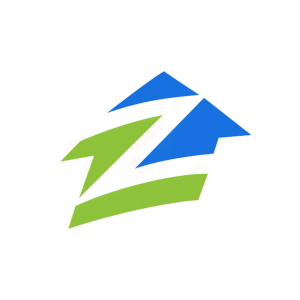Welcome to our dedicated page for Zillow Group news (Ticker: ZG), a resource for investors and traders seeking the latest updates and insights on Zillow Group stock.
Zillow Group, Inc. (NASDAQ: Z, ZG) generates a steady flow of real estate news and housing research tied to its role as an Internet-based real estate company. Its releases highlight how buyers, sellers and renters use Zillow’s platforms, and how affordability, mortgage rates and inventory shape housing decisions across major U.S. metropolitan areas.
Recent company news has covered topics such as forecasts of where typical mortgage payments are expected to be affordable, rankings of the "hottest" housing markets based on competition and home value trends, and monthly market reports that summarize shifts in listings, price cuts and buyer leverage. Zillow Group also publishes analyses of specific events, such as the impact of wildfires on housing value, inventory and rents in affected areas.
Beyond market conditions, Zillow Group’s news stream includes insights from its Consumer Housing Trends Report, which describes how buyers and sellers choose real estate agents and how online research shapes those relationships. The annual Zillow Zeitgeist report examines how people search for homes on Zillow, surfacing popular features, amenities and lifestyle preferences.
Investors and real estate professionals following ZG news can use this page to read company-authored perspectives on affordability, mortgage shopping behavior, rental and for-sale market dynamics, and the performance of different regions and city types. Because these updates draw on Zillow’s own data and tools, they offer a window into both consumer behavior on the platform and broader housing market patterns.
Zillow Group, Inc. (NASDAQ: Z, ZG) will release its first-quarter 2023 financial results after market close on May 3, 2023. A conference call and webcast to discuss these results will occur at 2 p.m. PT / 5 p.m. ET. The financial results and details for the live webcast will be available on the company's Investor Relations website. Zillow Group is recognized as the most visited real estate website in the United States, offering services for selling, buying, renting, and financing real estate. Its affiliates include brands like Premier Agent, Zillow Home Loans, and Trulia. For additional investor information, details can be accessed through their dedicated portal.
Summary not available.
The rising costs of renting have disproportionately affected renters of color, according to a recent report from Zillow. Black, Latinx, and Asian American Pacific Islander renters face application fees 43% higher than their white counterparts. A significant 30% of AAPI renters report security deposits of at least $1,000, compared to just 17% of white renters. Zillow’s Consumer Housing Trends Report shows that Black and Latinx renters are nearly twice as likely to submit five or more applications, often incurring $50 fees per application. Zillow aims to alleviate these costs with an online application process, allowing renters to apply for multiple rentals for a flat fee. However, most renters (85%) still report paying security deposits averaging between $500 and $999, further straining their finances.
Zillow's latest research indicates that specific home features can significantly enhance both sale prices and speed. Homes equipped with steam ovens, for example, can fetch up to 5.3% more, approximately $17,400, while doorbell cameras can aid faster sales by about 5 days. Personalized amenities like pizza ovens and soapstone countertops also show promising sale premiums. However, traditional features like tile countertops may decrease home value, with a 1.1% drop in expected selling price. The study analyzed data from 2 million home sales in 2022, highlighting trends that reflect modern buyers' preferences.
The homeownership rate for young single women fell to 24.5% in 2022, down from 28.6% in 2021, reversing years of progress due to challenges like lower salaries and a volatile job market. Young single men saw an increase to 33.1%. The analysis shows that single women now face significant obstacles in homebuying, with regions like Pittsburgh, St. Louis, and Detroit providing the highest share of affordable listings. In contrast, cities like Cincinnati and Kansas City exhibit the largest gender-based housing affordability gaps. Zillow emphasizes the need for creative solutions to address these challenges and offers resources to assist first-time buyers.
Zillow's latest market report highlights a record low in new home listings for February, driven by high mortgage rates, leaving buyers with limited options. The flow of new listings is nearly one-third lower than pre-pandemic levels and 22% lower than last year. Despite stabilized home values, which average $328,604—a 4% decline from the peak in July 2022—sales activity is sluggish, with 19% fewer pending sales year-over-year. The median time to pending is 17 days, suggesting that well-priced homes are still attractive. Zillow warns that volatility in rates may continue to impact buyer confidence in the spring selling season.
Zillow has launched an integration with Engrain's interactive map platform, enabling renters to view the exact location of available apartments within a building and even see potential views from the units. This feature, available on over 3,600 apartment pages, allows users to click on units for tours or applications, streamlining the rental process. Zillow aims to enhance the rental experience by providing detailed information, including 3D home tours and Walk Scores. The automated tour scheduling feature further simplifies arrangements for renters, indicating a commitment to improving digital tools in the rental market.
The U.S. housing market has seen a significant correction, with a loss of 58 'million-dollar' cities since July 2022, bringing the total to 464, according to a new analysis by Zillow. Average home values in these cities have decreased by $114,500. The most affected areas include California, which lost 20 cities, and metro regions like New York and San Francisco. The typical U.S. home has lost 4.1% of its value since last July, while homes in million-dollar cities have declined by 6.3%. Despite these declines, sellers can still achieve higher prices than last year due to ongoing demand, though affordability remains a challenge.
According to Zillow's recent survey, 73% of economists and housing experts advocate for zoning reform as a primary solution to the housing affordability crisis in the U.S. The survey, conducted by Pulsenomics, reveals that housing affordability continues to be a significant challenge, with monthly mortgage payments nearly $1,600, up 46% from last year. The chronic shortage of new housing, estimated at a 3.79 million-unit gap, affects both renters and buyers. Experts suggest that easing zoning regulations could lead to rapid home construction and assist communities in becoming more livable.
Zillow has identified Austin, Texas as the most pet-friendly city for renters, with 80.8% of rental listings allowing pets. Across the U.S., more than half (55.1%) of rental listings on Zillow permit pets, reflecting a growing trend as 59% of renters reported having at least one pet in 2022, up from 46% in 2019. The demand for pet-friendly rentals is evident, as renters frequently filter listings based on this criterion. Zillow's new tools, including a dedicated 'Moving with Pets' page, aim to assist pet owners in their search for suitable rental homes.


